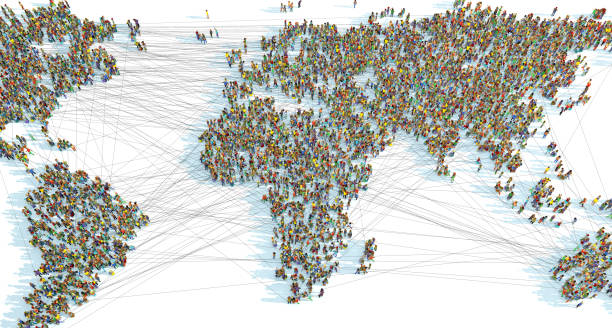International relations (IR) is the study of how different actors, such as states, international organizations, non-governmental organizations, and individuals, interact with each other in the global arena. One of the most important aspects of IR is the use of theories. Theories are frameworks or models that help us to make sense of the empirical reality and to generate hypotheses and predictions. In this blog, we will introduce some of the major theories of international relations and their main features, strengths, and weaknesses. We will also discuss the importance of IR and why it matters for our lives and the future of humanity.
Major Theories of International Relations
There are many theories of international relations, and they can be classified in different ways. One common way is to divide them into three broad categories: realism, liberalism, and constructivism. These categories are not mutually exclusive, and there are also other theories that do not fit neatly into them, such as critical theory, dependency theory, feminism, and Marxism.
Realism Theory in International Relations
Realism is one of the oldest and most influential theories of international relations. It is based on the assumption that the international system is anarchic, meaning that there is no central authority or government that can enforce rules or laws. In this context, states are the main actors, and they are driven by their own interests, especially their security and survival.
Realism has several variants, such as classical realism, neo-realism in international relations, and offensive and defensive realism. Realism is a useful theory for explaining and predicting the behavior of states in IR, especially in matters of war and peace, alliances and balance of power, and nuclear deterrence and proliferation.
Liberalism Theory in International Relations
Liberalism is another major theory of international relations, and it is based on the assumption that the international system is not necessarily anarchic, but rather interdependent, meaning that states and other actors are connected and affected by each other. Liberalism also assumes that states are not only motivated by their own interests, but also by their values and ideals, such as democracy, human rights, and free trade.
Liberalism has several variants, such as idealism in international relations, neo-liberalism, and liberal institutionalism. Liberalism is a useful theory for explaining and predicting the behavior of states and other actors in IR, especially in matters of cooperation and integration, human rights and democracy, and trade and development.
Constructivism Theory in International Relations
Constructivism is a relatively new and innovative theory of international relations, and it is based on the assumption that the international system is not given, but constructed, meaning that states and other actors are not fixed or predetermined, but rather shaped and influenced by their social interactions and shared meanings. Constructivism also assumes that states and other actors are not only driven by their material interests, but also by their identities and values, such as nationalism, religion, and culture.
Constructivism has several variants, such as social constructivism, critical constructivism, and feminist constructivism. Constructivism is a useful theory for explaining and predicting the behavior of states and other actors in IR, especially in matters of identity and culture, norms and values, and change and transformation in IR.
Marxist Theory of International Relations
Marxism in international relations is a theory of IR that is based on the assumption that the international system is shaped by the economic relations and class struggles between the capitalists and the workers. The marxist approach to international relations also assumes that the dominant ideology and culture in IR are determined by the interests and values of the ruling class, and that they serve to justify and legitimize their exploitation and oppression of the subordinate classes.
Game Theory in International Relations
Game theory is a theory of international relations that is based on the assumption that the international system is composed of rational and strategic actors who interact with each other in situations of conflict and cooperation. Game theory also assumes that the behavior and outcomes of the actors depend on the rules, preferences, and expectations of the game, and that the actors can use various strategies, such as cooperation, defection, bargaining, and signaling, to achieve their goals.
Critical Theory International Relations
Critical theory international relations is a theory of international relations that is based on the assumption that the international system is not given, but constructed, meaning that the actors and structures in IR are not fixed or predetermined, but rather shaped and influenced by the social, historical, and cultural contexts.
Dependency Theory in International Relations
Dependency theory in international relations is a theory of international relations that is based on the assumption that the international system is characterized by unequal and exploitative relations between the developed and the developing countries.
System Theory in International Relations
System theory in international relations is a theory of international relations that is based on the assumption that the international system is a complex and dynamic system that consists of various elements, such as actors, structures, processes, and feedback loops.
Feminist Theories of International Relations
Feminism in international relations is a theory of international relations that is based on the assumption that the international system is gendered, meaning that the actors, structures, and issues in IR are influenced and shaped by the social constructions and expectations of gender. The feminist approach in international relations focuses on the role of women and gender in IR, and argues that women and gender are often ignored, excluded, or marginalized in the mainstream theories and practices of IR.
Importance of International Relations
International Relations is an important and relevant field of study and practice, as it helps us to understand and explain the complex and dynamic world that we live in. IR also helps us to evaluate and improve the policies and actions of states and other actors in the global arena, and to address the various challenges and opportunities that we face as individuals and as a collective. IR also helps us to envision and create a better and more peaceful world for ourselves and for future generations.
Conclusion
In this blog, we have introduced some of the major theories of international relations and their main features, strengths, and weaknesses. We have also discussed the importance of IR and why it matters for our lives and the future of humanity. We hope that this blog has given you a brief and clear overview of the field of IR and its theories, and that it has sparked your interest and curiosity to learn more about it. IR is a fascinating and rewarding field, and we encourage you to explore it further and to apply it to your own experiences and perspectives.




